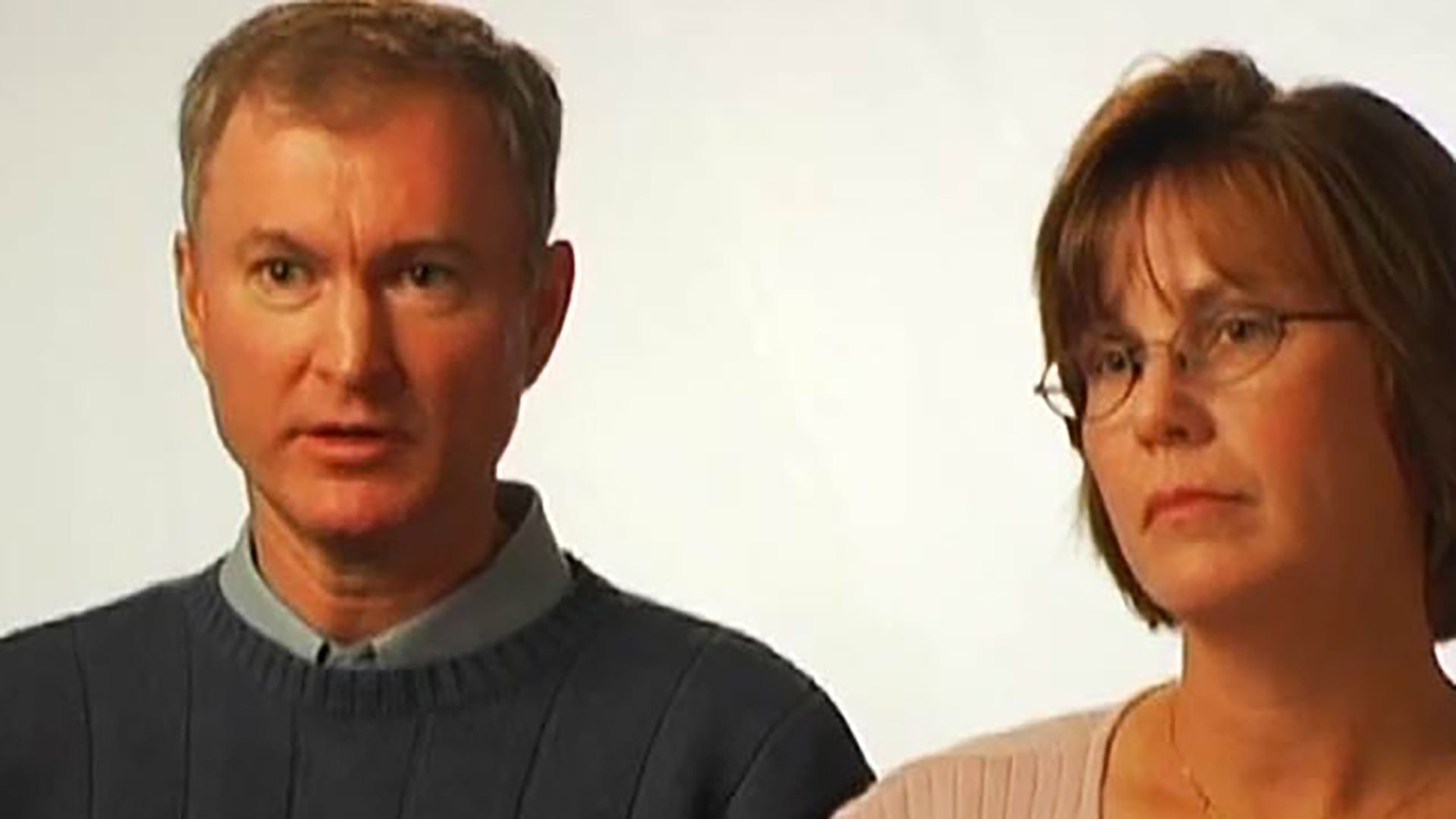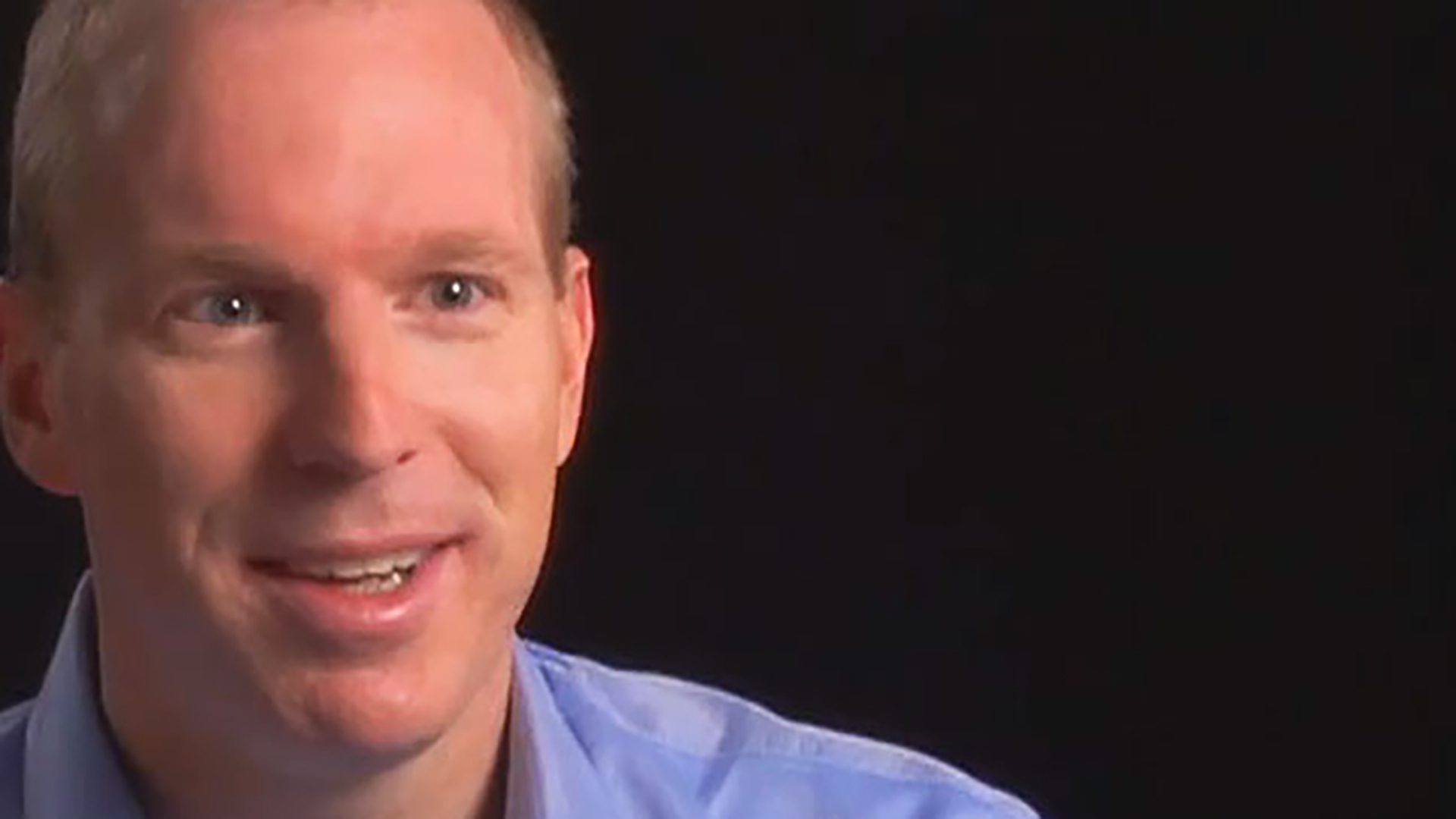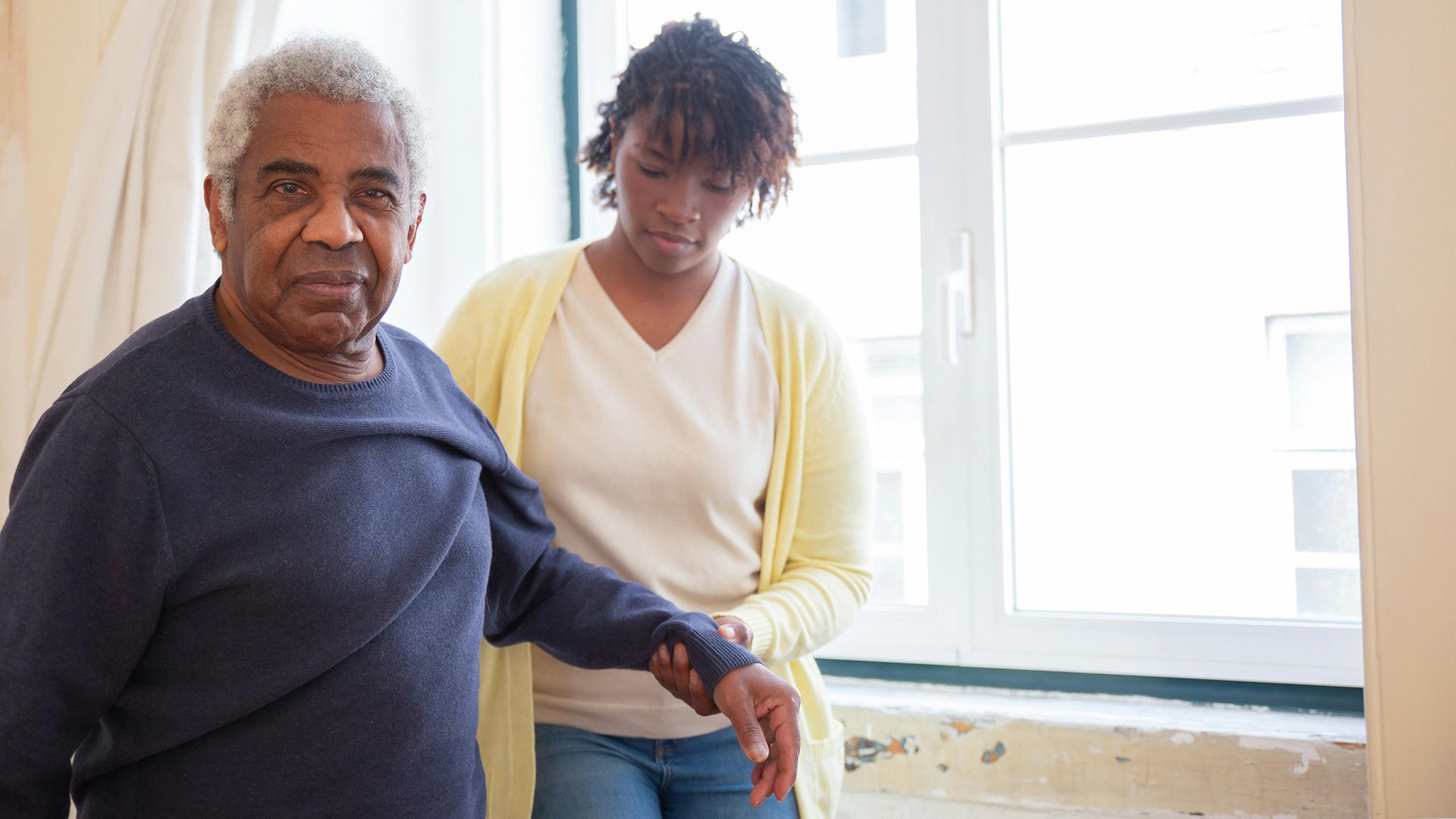Survivor Interview – Jeff & Marj P.
Jeff is a melanoma survivor. Marj is a basal cell cancer survivor. They talk about body changes, communication, and involvement in the cancer community.

Jeff: I became a survivor on July 20, 2004. I am a melanoma survivor.
Marj: I became a survivor in August 2004, and I’m a basal cell cancer survivor.
Jeff: I first started seeing a mole changing colors and changing shape. I’d been seeing my dermatologist regularly, because I’d played tennis actively and competitively since I was a child. I know that I’ve got to go back in every year and make sure that I get my different moles looked at every year, especially the areas that have had a lot of exposure to the sun. When I went in to see the doctor this time around, she said, “We need to remove it.” So I went back in and had the mole removed. Then I went off and participated in the Seattle to Portland bike ride with my forearm stitched up. When I got back, I was told, “You have malignant melanoma skin cancer.” This one was .4 millimeters, which put me in Stage 1, which gives me a 97-98% chance of survival over a five-year period. I was told that I had to have a re-incision. They needed some more skin around the margins of the tumor that they took out in the biopsy. I went to see a plastic surgeon, who was very familiar with skin cancers.
Marj: The doctor drew how big this was going to be. It started from this little tiny incision to half of his arm. They told him it was too tight, so they’d have to take a skin graft from his stomach, because once they took the main part out of his arm, there wasn’t enough skin left to sew it back up.
Jeff: I’m still recovering somewhat from it, because the nerves still aren’t firing all the way through the left arm, but the healing is going very well. The stomach area was probably one of the most difficult areas, because you want to be leaning back and standing straight up, and it puts a lot of pressure on the stitches.
Marj: Mine weren’t moles. They were just red marks. I had one on my left eyebrow and one on my right shoulder. The one on my forehead was one of those spots that’s a worry spot for me. Occasionally, it would dry up and ooze a little bit, and that’s another sign that it’s basal cell. So I went in and said, “Okay, let’s have this checked.” We had a biopsy done. It came back as basal cell. Jeff’s treatment was at the hospital because his was so extensive. But mine was in the office. It was a pretty simple procedure.
Jeff: Marj has, I think, a couple hundred moles around her body, so it’s almost a full-time job for a dermatologist to look at every one of those moles, which makes it important for you to have a really good dermatologist who is going to be very meticulous. Because if she did get a little lazy or a little lackadaisical in reviewing it and misses an important one, it could be a life-threatening issue.
Marj: At first, we were in our own little world. We kept our thoughts to ourselves, because nobody wanted to say anything out loud to each other that may be negative or whatever and maybe scare the other person more than they already were. But we finally decided to sit down and talk about it. We went from simple stuff to, what if he died or what if I died? What are our finances?
Jeff: After 21 years of marriage, you can feel what your partner is feeling. I was feeling some tension from all of this from Marj, and I could understand it. So I felt, let’s just deal with this. I said, “Marj, if something happened to me, we’re covered in this area of the finances, and we’re covered in this area. This is what you would do, etc.” But I think the first area that I addressed was, “Here’s the deal with the cancer. It’s .4 millimeters. Survival rate: 97-98% over five years. With that high of a survival rate, it looks like we caught it very early. It doesn’t mean we’re gonna catch the next one early. There’s probably gonna be more we’re gonna have to deal with. So we’ll continue to deal with it. We’ll watch it.” It caused me to review and make sure everything was in line from the financial side. Now, we probably won’t take risks before we have covered them. For example, if we’re gonna leverage the finances a little bit, we’ll have the insurance in place first, instead of afterwards. I was very healthy, very athletic. Both of us are. We figured, “We’ll live forever. We’re invincible.” Now, we know we’re not, so we’ve got to make sure that we cover our risks appropriately. So we talked about life insurance. Do we have enough? We talked about our finances and how we’re covered. We’ve planned very well. But it caused us to actually tighten it up even more.
If something happened to me, it would put a huge burden on Marj, and that would not be acceptable. So I’ve had to go out post-surgery already and look for more life insurance. It’s been interesting going through what I never thought I would ask my insurance agent: “Am I insurable?” He says, “Well, I’m not sure yet.” It’s not the greatest confidence booster when someone tells you that they don’t think you’re a good risk. In terms of insurance, you take that for granted that you’ll never have a problem getting it. So that’s been an eye-opener.
Marj: We have two boys. Matthew is 17 and Joel is 13. We’ve always talked everything out with them. They’re not afraid to come and ask us questions. When this all started to happen, we sat down and told the boys what was gonna happen. All the statistics, and what Dad was gonna go through. Then a week or so later, I had found that I had to go through some stuff myself. But I had things removed before, so the boys said, “Okay, it’s Mom.” They had their questions to ask, but we’ve never lied to them, and we’ve never hidden anything from them. Our oldest one was very concerned, but he’s very open and wants to know everything, right down the line. Joel’s a little quieter. They seem to be okay.
Jeff: We really try to educate them as to, “Here’s what the statistics are for survival on something like this. This is why it’s so important, Matthew, that you put your sunscreen on. This is why Mom and Dad have been talking to you about going out and playing your tennis matches without sunscreen and the dangers of it.” Our youngest, Joel, was out mowing the lawn. About five-ten minutes into mowing the lawn, he runs into the house and says, “I gotta put my sunscreen on.” We knew that we finally communicated the importance at that point.
Jeff: We are a team.
Marj: We’ve been a team for a long time.
Jeff: We’re involved with the Peloton Project. I’m riding for a number of people. One is a 60-year-old couple. One of them has Stage 4 stomach cancer. The other one was diagnosed the following week with lung cancer and is a non-smoker. This is a couple in their sixties that were planning a cruise and their life is turned upside-down right now. A friend of mine is a sponsor. He asked if he could sponsor me and if I would wear their name on my jersey in Austin, Texas. I said, “I’d be honored to.” Then I’ve got another individual who is out of the St. Louis area, and she has breast cancer. I’m gonna ride for her. Her boss asked me if I would. My sister was diagnosed with breast cancer last week. This is her second one. She’s had a mastectomy already. I’m gonna ride for her as well. My grandmother had a mastectomy twenty years ago. She’ll be 94 this year. I’m gonna ride for her. One of our best friends just died last year after a long bout with cancer. I’m gonna ride for her. That’s what it all means.
Jeff: I’d like to see healthcare organizations do more in the area of education. I sit on an investment committee for the largest healthcare organization in the country, and now I’m going to be more involved in terms of saying, “Hey, we need to spend more health dollars letting the public know. Educate them because if we can educate them early, we can keep the cost of healthcare down.”
Why isn’t the government spending some money in this area? Because maybe it could take some of the pressure off of healthcare dollars that are in such short supply right now. There’s so much that we can do in early detection, not just for skin cancer, for breast cancer and other cancers. If we focus hard enough in these areas upfront, it’s a huge savings on the other side. I’m a hospital board member for one hospital that is a partner with two others that own a cancer center. I spoke at a meeting about, “Why aren’t we in the community and talking about early detection?” If you’re a cancer center board member, there should be some passion. What are you trying to do? What are you trying to accomplish? Get out in the community. Don’t stay in the boardroom. That’s not where you belong.
Marj: Live strong, to me, means basically what it says. Do what you need to do to make your life healthy, physically and mentally. It’s always good to be in a positive frame of mind and get out there and do the things you like to do. Don’t wait to do things. Go do it now, because who would have thought this was gonna happen to us? I live strong through my kids. Make sure they’re doing well and they’ve got a positive outlook on life. Living with Jeff helps. He’s very positive. He’s a good help on that stuff. Just doing what we do every day a little bit better.
Jeff: Live strong, to me, is focus on the positive. We have a strong faith and our family does, and that this is an opportunity on the positive side. Whatever degree or impact you have on the negative side or challenges that you have, we believe that there is an equal opportunity on the positive side. If we can just help one person live where they might not have survived, then we’re living strong and so will they. Hopefully, they will pass the word on and it’ll catch on. I live strong by being very involved in the community. If we can go out there and we can help other people every single day, then we’re living strong.
Marj: I’m Marj Petersen, and I’m a basal cell cancer survivor.
Jeff: I’m Jeff Petersen. I’m a malignant melanoma skin cancer survivor.

